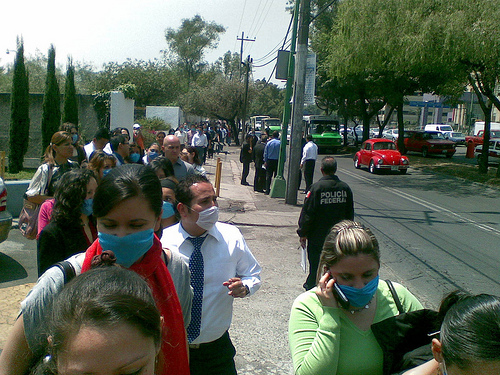
An outfit called the Presidential Prayer Team is praying that President Obama should effectively lead the fight to combat swine flu.
Meanwhile, my father went into the hospital this morning for relatively minor surgery — though at his age, no surgery is truly minor. I prayed that it should go smoothly and successfully.
The other evening after prayer services at our synagogue, the rabbi announced that the brother of a former synagogue president had been involved in a serious bicycling accident and was paralyzed. The rabbi led us in a prayer, Psalm 20, for his healing. “That’s what a congregation does,” the rabbi commented.
In situations like these, can prayer really help heal? Assuming, of course, that the person who’s ill doesn’t know he is being prayed for — which, otherwise, could contribute to a placebo effect. Interestingly, research in recent years has given contradictory answers about the power of prayer.
A 2006 Templeton Foundation-funded study on heart patients said no, prayer doesn’t help. It may even hurt! That contradicted a 1988 study, the first of its kind and also on cardiac patients, that said the opposite, as did another in 1999. Again, a study supported by the National Institutes of Health found remarkable power in prayer, but was contradicted by another from the Mayo Clinic.
So it goes. Would you really have expected anything different? My purpose here isn’t to initiate a discussion of research methodology. There are any number of ways that any or all of these studies could have been methodologically flawed.
Instead, as a Catholic friend points out to me, does anyone who’s a traditional theist of a Biblical variety seriously think that God would consent to be tested this way? I assume that prayer does work. However, doesn’t the Hebrew Bible warn pretty strenuously against testing God?
“You shall not test the Lord, your God, as you tested Him at Massah” (6:16).
The reference is to an incident after the Jews left Egypt and were traveling in the desert. The people complained of a lack of water, so: “[God] called the place Massah U’Meribah [‘Test and Contention’], because of the contention of the Children of Israel and because of their test of the Lord, saying, ‘Is the Lord among us or not?’ (Exodus 17:7).
They should have prayed, not complained. But it was precisely the testing nature of the complaint — “Is the Lord among us or not?” — that God found objectionable.
The exception seems to be testing God in the context of giving charity: “Bring all the tithes to the treasury, and let there be sustenance in My Temple. Test me with this, please, says the Lord, if I do not open up for you the windows of the Heavens, and pour out upon you endless blessing!” (Malachi 3:10).
But testing God by praying for sick people, coolly tallying up the results to be reported in a science journal and then in the media? It’s just impossible to believe, given what we know about Him from the Bible, that God would go along with that.

